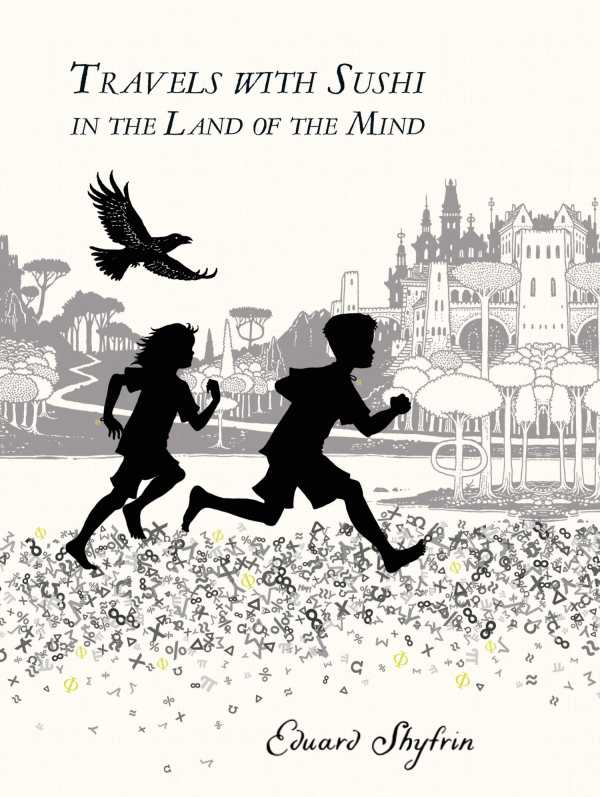Travels with Sushi in the Land of the Mind
Travels with Sushi in the Land of the Mind is an intense and dramatic story in which curious children go on a magical adventure and confront powerful moral questions.
Eduard Shyfrian’s religious allegory for young readers, Travels with Sushi in the Land of the Mind, features high-stakes action and drama in a mystical world where good is pitted against evil.
After a day at the beach, Aaron and Stella go to their favorite sushi restaurant with their grandparents and order their usual salmon sushi. The chef brings out two special gold sushi rolls for them to taste, too. When they close their eyes and take a bite, they are sent into another realm, where they are greeted by Salmon Mushi, the leader of a religious tribe in the Land of the Mind. Mushi tells the children that they have been chosen to save his world from the Black Queen by uniting a sacred book with the Mushi tribe. To do so, they traverse the world and face many challenges, hoping to prove that good can conquer evil.
The Land of the Mind is described as a “quantum world,” with quantum principles guiding its physics. Most quantum theory terms are defined in a haughty, long-winded, and confusing manner, though, and their definitions introduce additional words that need defining. The impact of the land being a quantum world is not followed through; there are no descriptions of the Land of the Mind’s physics. More overt is the fact that the Mushi tribe’s beliefs and backstories include similarities to various world religions, and Bible verses are paraphrased in the course of the text.
There are numerous minor characters, but few have distinctive personalities. Aaron and Stella are also indistinct; they act in accordance with what the plot requires, instead of driving it forward themselves. Their expressed desires and fears stem from the mission they’re given, and there’s little sense of what their lives are like in their own world.
Structured to deliver lessons, the book follows the children as they move deeper into the Land of the Mind, and their passage through its areas is defined by moral challenges. They encounter the Land of Pride, home to royalty who flatter Aaron, and the Zone of Indifference, where residents don’t care about others’ suffering. In each locale, they conquer faults within themselves in order to move closer to their destination.
The writing is eloquent and expressive, if it employs unnecessary adverbs. Descriptive word choices elevate the text, though leaving it still within the reach of the middle grade audience. Themes too mature for that intended audience include a public execution that’s stopped at the last minute and the threat of a suicide bomber.
Travels with Sushi in the Land of the Mind is an intense and dramatic story in which curious children go on a magical adventure and confront powerful moral questions.
Reviewed by
Aimee Jodoin
Disclosure: This article is not an endorsement, but a review. The publisher of this book provided free copies of the book and paid a small fee to have their book reviewed by a professional reviewer. Foreword Reviews and Clarion Reviews make no guarantee that the publisher will receive a positive review. Foreword Magazine, Inc. is disclosing this in accordance with the Federal Trade Commission’s 16 CFR, Part 255.

